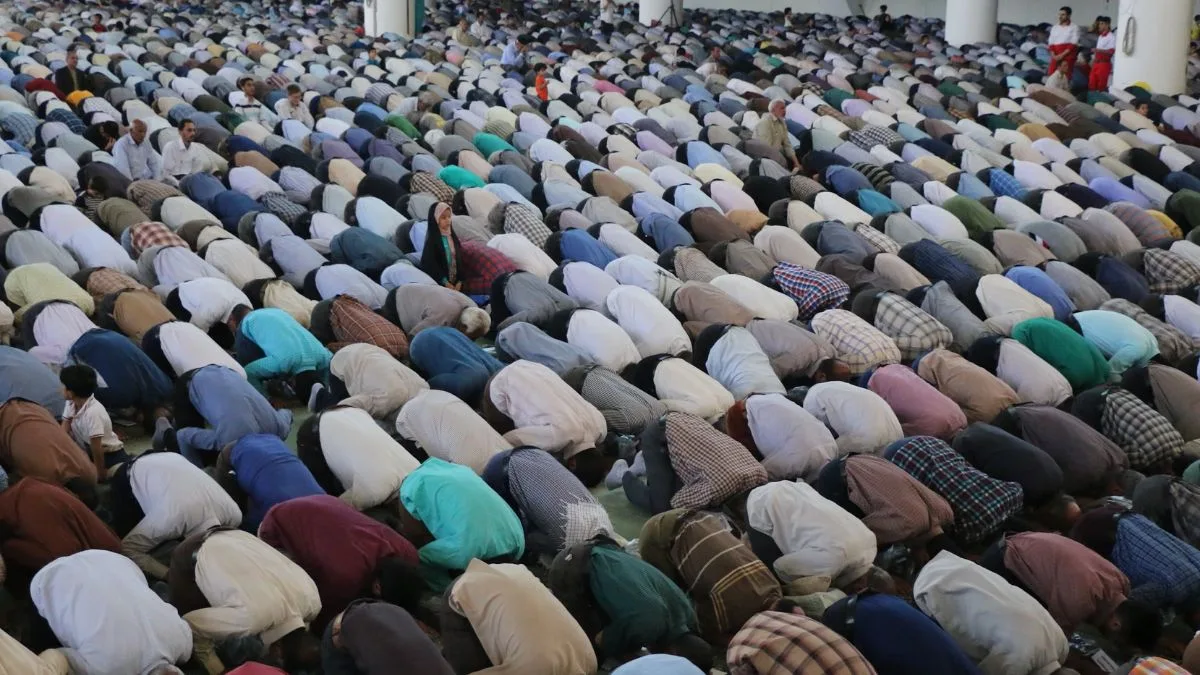
Muslims offering Friday prayers. Photo: matin firouzabadi
Unlike Fajar, Maghrib, and Isha prayers that are offered with a loud recitation, the Dhuhr and Asr prayers are offered silently. This is because the time these prayers take place is in the daytime when there is a bustling atmosphere.
The Dhuhr and Asr prayers are offered during the day time, particularly during work hours when daily chores and trade are taking place. During the time of these prayers, the mind is usually full of thoughts regarding the chores taking place around an individual.
Thus, in such cases, if the recitation is carried in a loud tone, distractions will be created leading to a less enriching experience. There are high chance of the focus being drifted away in case of loud recitation because of the bustling environment at that time.
Thus worshippers must recite the prayer quietly, however, it is encouraged that one should remain attentive to what he is reciting and must try to build a connection with Allah internally.
The praying of Dhuhr and Asr prayers in pure silence serves a practical purpose. In case every worshipper in the congregation was to recite the ayahs aloud, the collective noise would disrupt the focus. It is therefore advisable for both the congregation and Imam to recite silently fostering a peaceful environment.
Fajr, Maghrib, and Isha are recited out aloud as these prayers take place at quieter moments of the day. The daily activities have reached an end at time of dawn, dusk, and night when these prayers are offered. Thus the loud recitation of the Imam at the time enhances the experience in the congregation.
In Surah Al-Isra (17:110) Allah has advised worshippers to maintain a tone middle way between loud and silent. This applies to Qiyam Al-Layl and Tahajjud, where the recitation should be in a manner that can be heard by those who are praying yet soft enough to not disturb the restful.
Tracing back to Islamic history, the silent recitation used to take place when Muslims faced persecution by Quraish in Makkah. To avoid the attack of oppressors these prayers were recited silently.
However, when the Holy Prophet started reciting silently the ones who listened to him missed the recitation, thus he was enjoined to recite at a moderate volume.
The silent recitation of Dhuhr and Asr prayers is to respect the daytime chores and facilitate undistributed worship.
Got a question? Feel free to ask mufti and get quick answers.
This post was last modified on May 29, 2024 7:15 pm
Well from which Prophet Muhammad was given bath has been renovated and is open for…
More than 556,000 worshipers have been able to access guidance services at the holy site.
Human Rights Watch urges Saudi Arabia to enforce heat protection measures, emphasizing the need for…
A video has gone viral showing women dancing in front of Kaaba and inside Masjid…
Hajj 2024 faces criticism for insufficient ambulance services, as reported by Middle East Eye. Unregistered…
Riyadh has decided to temporarily halt the issuance of B2C Umrah e-visas in Egypt. This…